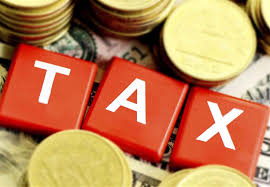Stakeholders in the Nigerian capital market have argued that portfolio investments might be withdrawn from the Nigerian Exchange following interest rates hike in both the United States and the United Kingdom, making their investments more profitable in stable economies.
Recall that the Board of Governors of the Federal Reserve System recently voted unanimously to raise the interest rate paid on reserve balances to 5.15 per cent, effective May 4, 2023.
Likewise, due to concerns about inflation, the Bank of England has recently raised interest rates for a record-breaking 12th consecutive time. The cost of borrowing has been lifted to 4.5 per cent, and the bank warns that inflation will be higher this year compared to previous expectations.
In Nigeria, with a primary interest rate of 18 per cent and an inflation rate of 22 per cent, there is a 4 per cent negative return on investment for a one-year investment.
Nigeria attracted $5.3 billion in capital importation in the whole of 2022 compared to $6.7 billion a year earlier. Capital importation was over $23.7 billion in 2019. Interest rate for buying Nigerian sovereign securities was as high as 19 per cent at the time.
Boniface Okezie, the National Chairman of the Progressive Shareholders Association of Nigeria, argued that investors are likely to redirect their funds to stable economies where they can expect better investment margins.
He states that investors generally prefer to put their money in safer and more stable markets. However, he acknowledges that developed markets are heavily regulated, making it difficult for investors to achieve substantial returns on their investments.
Also, Moses Igbrude, the President of the Independent Shareholders Association of Nigeria, acknowledged that Nigeria may have been perceived as a risky environment for investment in recent months.
He emphasizes that a stable environment is crucial for Nigeria’s growth and predicts that it will soon be achieved.
Professor Tayo Bello, the Dean at the Faculty of Law, Adeleke University, and a Fellow of the Chartered Institute of Bankers of Nigeria, Certified Institute of Stock Brokers, and Chartered Institute of Administrators, support investing in Nigeria as he sees the potential for better returns compared to investments in the UK.
He points out that the main challenge lies in investor confidence in the Nigerian government. If investors perceive instability, they are likely to withdraw their investments.
Dr. David Jakpor, an economist and economic affairs analyst, emphasized that despite Nigeria’s reputation as an unstable investment destination, which is common for many developing countries, Nigeria still remains a choice for investors.
He acknowledged that foreign investments in Nigeria have declined over the past eight years. However, he believes that with the implementation of the right policy changes by the incoming administration, Nigeria will be put on the right track, leading to resurgence in foreign investments.




